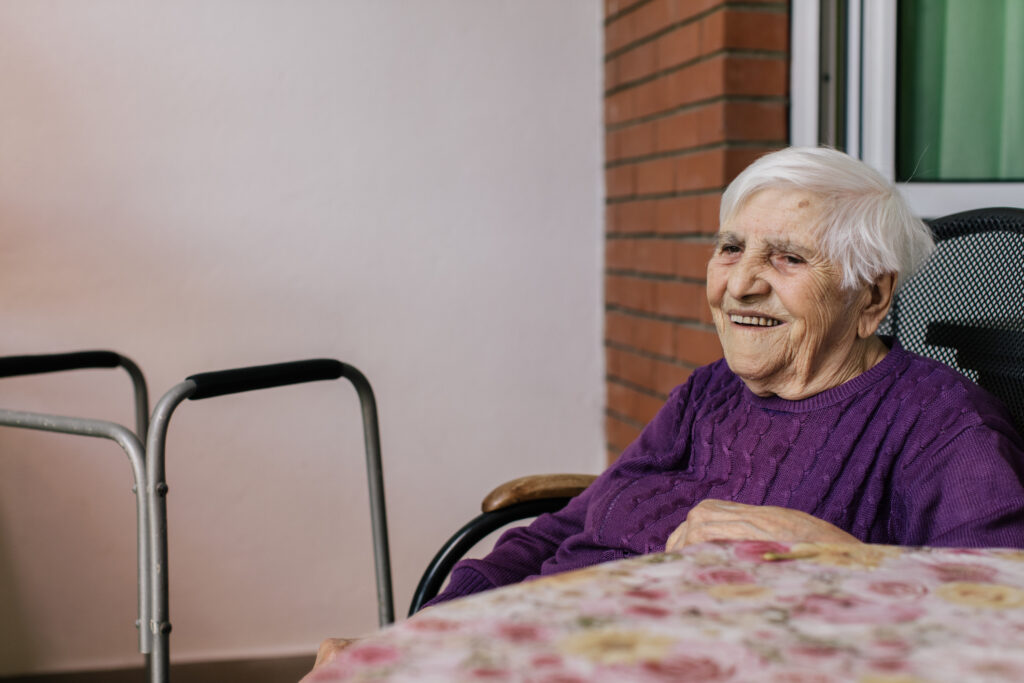
Askrigg Foundation: Accessing finance for community-led housing
Community-led housing projects can find it hard to raise funds. Charity Bank provided a loan totalling £130,000 to the Askrigg Foundation to convert a rundown building into a community shop and three new affordable homes.
Chair, Elizabeth Fawcett, and trustee, Annie Sumner, tell us more.
What’s the history of the building?
Elizabeth: The building was purchased by a vicar back in the 1970s. He was very entrepreneurial and wanted to create employment in the Yorkshire Dales, as there was a massive exodus of young people from the area. Originally, there was a shop, a craft factory (they made Wombles!) and an office.
Over the years, the building has been used for various things, but the top floor had become totally obsolete and the whole building was falling into disrepair, so we needed to look for an alternative use for the property.
It’s quite a big building, in the heart of the village. We wanted to safeguard its future. It’s done 50 years of good for the village so far, and we wanted it to do at least another 50.
There was a lot of discussion about what the village needed. In the end, we decided to retain the shop and create a one-bed flat, a two-bed flat and a two-bed cottage.
What renovation work have you done?
Annie: The front of the building was in a pretty reasonable condition. But the rear of the property needed a lot of work to make the cottage habitable. The floors, ceilings and windows all had to be replaced and it needed completely rewiring. When taking the plaster off the walls, we found a door on the first floor going nowhere that had been covered up, and a huge hole in the wall that had been a fireplace.
We didn’t have to change the shop that much, but the walls needed reconfiguring where the old staircase was removed.
Is there any way you could have done the work without finance?
Annie: No. We got a Richmondshire District Council grant for the community housing and a National Lottery Awards for All grant for the commercial side. Those were agreed before we got the Charity Bank loan. We ended up spending all the money that we got, as well as the money we had saved.
I think having the grant money gave Charity Bank more security. They could see the project would actually be completed. So the loan and grants mutually enhanced each other.
Presumably, the rent from the tenants and the shop cover the loan repayments?
Annie: Yes. We’re actually bringing in around 50% more than the loan repayments. And we don’t owe anything else. So hopefully in time, we’ll start to build up a reserve again. And I think that then we can start looking at developing new affordable houses.
Why did you choose Charity Bank for the community-led housing loan? Did you approach anybody else?
Annie: I’ve worked with Charity Bank on a previous project in the village I live in, and the Rural Housing enabler for Richmondshire District Council has also worked with them previously. Jeremy from Charity Bank is always willing to speak to anybody who’s doing community-led housing, so he was happy to have a chat to other people at the foundation.
Elizabeth: Annie had a good relationship with Jeremy, so it didn’t make sense to go anywhere else really. We were happy with the responses that he gave us. And Annie is right to say that the whole project would never have happened without either the grants or the loan. I think they both shored up the other in terms of confidence. So they were vital to us.
Did you have any concerns about taking out a loan? Was it the first time the foundation had taken out that kind of finance?
Elizabeth: The building was purchased back in the 1970s with beneficiary funding, so there wasn’t any need for a loan and there never had been. So for the trustees to take on the responsibility of a significant loan was a lot to ask and they did have misgivings. However, we converted from a charity to a charitable incorporated organisation to get the loan, which means there’s less risk to the trustees.
And the only real alternative was that we sold the building because part of it just wasn’t usable without significant funding. It felt like we would have been selling it down the river. It’s the biggest legacy that the village has; it is effectively owned by the village.
How did Charity Bank help in those early stages?
Annie: We had the project costed initially and it came in at more than the value of the property. So we had to rethink the whole project. Jeremy was very helpful in those discussions.
In the end, we decided we needed less money than we’d originally applied for. We did need an extra top up at the end. Jeremy felt confident that we could service the extra loan and he was happy to give it to us. Otherwise, we couldn’t have completed the final stages of work.
And how did you find the actual process of getting a loan?
Annie: Well, it’s an interesting process… I had done it once before for another organisation, but that was for a new build on a piece of land we owned. There were more hoops to jump through with an old building and some of the questions Charity Bank asked us were different, which was confusing. Our yard is accessed by other people so there were all sorts of legal complications relating to that too.
So it isn’t an easy process, but I understand why. And the people in the loan admin department are excellent. They talk to you and really help you through the process. I don’t think there’s anything that could be done to make the process easier really.
What was the biggest challenge?
Annie: The paperwork. You get sent the board resolution and you look at it and it seems very complicated because it’s in ‘legalese’. So you need to break it down and go through it bit by bit. Again, if you need help, you only have to contact the loan admin team and they talk you through it. That’s what they’re there for, to help people get to the end point. And you build a relationship with people at the bank.
Did it help that Charity Bank have worked with community-led housing projects in the past?
Annie: Yes, that is very helpful, because they understand the problems that come with that sort of process. Their experience is invaluable.
One of the challenges is that you do a housing needs survey but often, by the time your project is complete, that housing need has changed drastically. A survey is just a snapshot in time.
And do you like the fact that Charity Bank is just there to service the sector, so your repayments are going back into supporting other organisations?
Annie: I like that. The money is going back into the bank to help other people rather than just going to shareholders.
Did the fact that you’re all volunteers make the process trickier?
Elizabeth: Yes. At the time, I had a very busy job. And three of the trustees are retired and three are working. And then we have Dave the vicar. Even when you’re retired, there’s still lots to do.
We were so blessed that Annie joined us as a trustee, with all her knowledge from working with the only other community-led housing project in Hudswell. I’ve been able to trust that what she tells me is right.
Getting together, particularly over the last year, has been challenging. We’ve had one meeting in person; the rest have all been on Zoom. But you can’t do paperwork on Zoom, so thank goodness for Annie, who has come to all of us for signatures and so on.
So yes, it can be more of a challenge when you’re volunteers. If you’re in a paid job going through this process, then obviously you have a meeting, figure out who’s going to do what, and get on with it. But when you’re all volunteers, half the time someone’s busy with lambing, someone is busy with milking and the vicar’s doing a funeral!
Are you happy with the end result?
Elizabeth: Very. We’re going to have an open day soon and plan to invite Jeremy and other people from Charity Bank. It is a beautiful project. We’re very proud of it and Charity Bank should be proud of it as well because they’ve helped us to go forward with confidence, knowing that they weren’t going to turn around and pull the rug out from under us.
Annie: With Charity Bank, you know where you are. If there’s a problem, you can trust that they’ll help to find a solution. Charity Bank and Richmondshire District Council have helped to rescue a building that was starting to fall apart. Together, we’ve made it sustainable for the next generation.
Charity Bank has supported numerous community-led housing projects. If you need finance for yours, please call us on +44 (0)1732 441900
About Charity Bank
Charity Bank is the loans and savings bank owned by and committed to supporting the social sector. Since 2002, we have used our savers’ money to make more than 1400 loans totalling over £605m to housing, education, social care, community and other social purpose organisations.
Nothing in this article constitutes an invitation to engage in investment activity nor is it advice or a recommendation and professional advice should be taken before any course of action is pursued.


